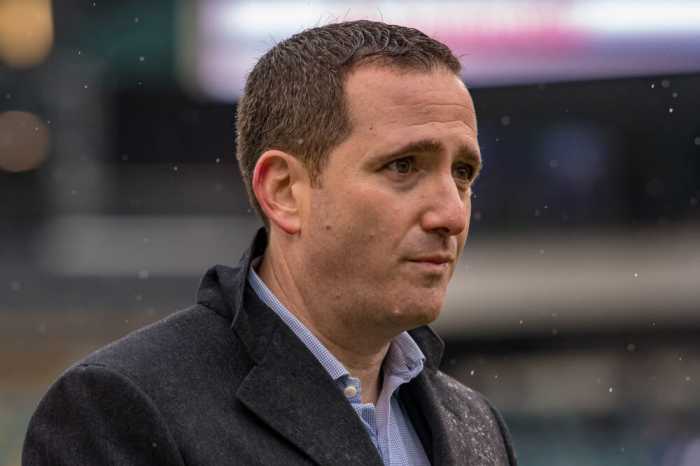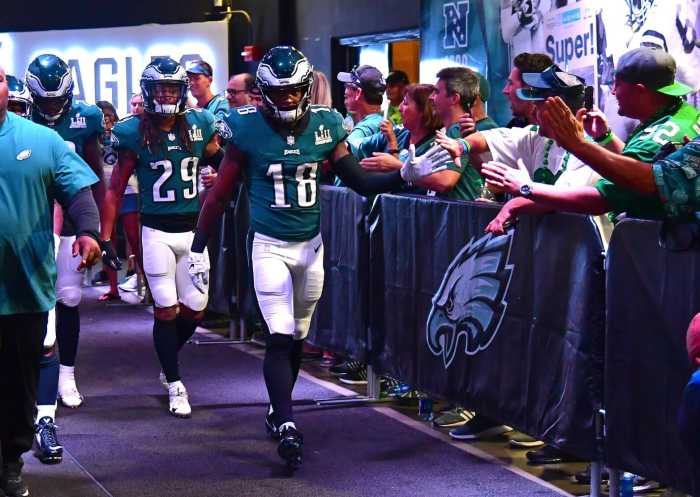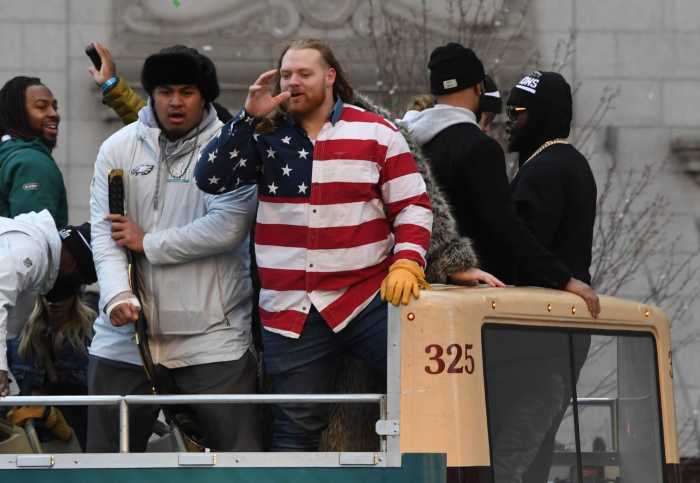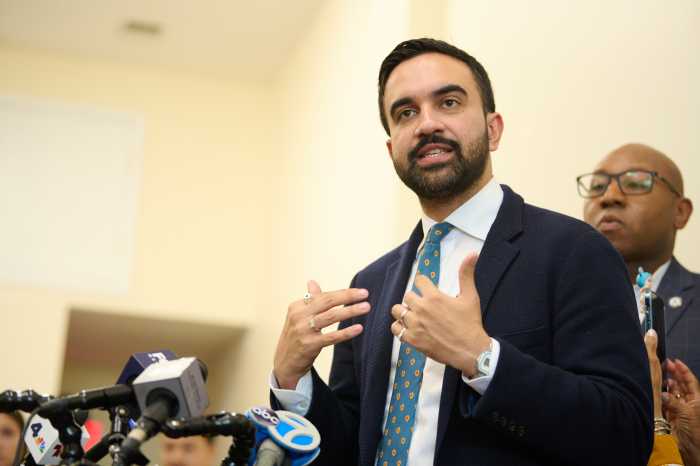The Philadelphia Eagles earned an NFC Wild Card berth in a season that owner Jeffrey Lurie referred to as a “transition period” toward a new era. They easily surpassed their preseason over/under of 6.5 wins with a 9-8 record. They recovered from a 2-5 start and reeled off seven wins in nine games to clinch their bid to the NFL postseason.
However, their lopsided loss at the hands of the Tampa Bay Buccaneers legitimized the widespread criticism of the Eagles as a team only capable of beating inferior opponents with below-average quarterback play. They did nothing to demonstrate their progress as a team and disprove their critics. Instead, the determining factors of the outcome of Sunday’s game aligned with the same problems that put the Eagles in a 2-5 hole after games the most formidable opponents on their schedule.
Eagles Against Playoff Teams
The loss on Sunday dropped the Eagles to 0-7 against the five playoff teams they faced. They had a 9-2 record against non-playoff teams. In their only two games against non-playoff teams who finished with winning records, they fittingly went 1-1 with a loss to Los Angeles Chargers in Week 9 and a win against the New Orleans Saints in Week 11.
The nearly flawless correlation of wins and losses based on the strength of their opponents defines the 2021 Eagles much more appropriately than their record in the second half of the season. The coincidental ordering of the schedule drove the narrative of drastic improvement and “created the illusion that this team was better than it was,” as put by Ray Didinger on Eagles Postgame Live.
In October, the Eagles were better than their 2-5 record indicated. The strength of their competition skewed the perception, and they proved that with a 7-2 stretch to clinch a playoff berth ahead of the final week of the season. If the stronger opponents they faced were spread more evenly throughout the schedule, it’s reasonable to think that the Eagles would’ve been in a comparable position at the end of the season.
Gannon’s Lackluster Defensive Gameplan
The performances of opposing quarterbacks against the Eagles defense in 2021 serve as accurate measuring sticks for the respective signal-callers. Star quarterbacks like Tom Brady, Dak Prescott, and Patrick Mahomes proved their worth with great execution and helped their teams to prolific offensive performances. Bottom-of-the-barrel starters like Sam Darnold and Daniel Jones struggled against Philadelphia, while overmatched reserves like Jake Fromm and Mike Glennon looked completely inept.
The defense allowed an average of 13 points per game against teams who finished with losing records and 33.2 points against teams who finished with winning records. They allowed five of the first nine opposing starting quarterbacks they faced to complete 80 percent or more of their passes. All five played for teams with winning records in 2021.
They kept the opposing quarterbacks under 80 percent in each of the final eight regular-season games against weaker competition.
Brady completed 24 of his first 30 passes for an even 80 percent and helped the Bucs to a 24-0 lead on Sunday. He finished 29/37, just narrowly below the 80 percent mark because of skewed stats after the outcome had already been decided.
After the Week 9 loss to the Chargers, I wrote about the struggles of Gannon’s defense while also noting the likelihood of statistical improvement moving forward. I posed a question about the defense that should be revisited this offseason by general manager Howie Roseman and the Eagles front office: Are they (the Eagles defense) truly moving forward and building a playoff-caliber defense if they’re only succeeding against opposing quarterbacks who are unlikely to reach the postseason anyway?
Nick Sirianni tried to defend Philadelphia’s defensive gameplan on Sunday and the lack of tangible progress the defense showed against top competition after their performances against Brady and the Bucs in Week 6 and the stronger offensive teams they faced at the beginning of the season.
“It’s not like it was against the same bullets that we were flying at him (Brady), at those quarterbacks.”
-Nick Sirianni
If Gannon adjusted the game plan with different “bullets” against the Bucs on Sunday, the results were still the same.
Hurts, Offense Can’t Solve Bucs D
When the Bucs took a 24-0 lead on a touchdown by Rob Gronkowski in the third quarter, Jalen Hurts had completed 13 of his 24 passes for 126 yards and one interception. He padded his final stat line after the outcome had already been decided.
He missed open receivers and failed to manage an effective offense for most of the afternoon. While Hurts did show some progress throughout the season in his decision-making in the pocket, two key mistakes on Sunday showed undeniable resemblance to mistakes made in losses earlier in the season.
The Eagles fell into a 17-0 hole in the second quarter. They desperately needed a score before halftime to calm the momentum and put themselves in a good position to make the game close again with a score on the opening possession of the second half.
First, Hurts overshot Dallas Goedert on a play that looked incredibly similar to a missed opportunity in the Chargers game.
On Philadelphia’s final possession of the first half, he cost the team an opportunity to put crucial points on the board with a poorly-timed interception. The worst game of his professional career came against the New York Giants in Week 12, when possibly his biggest mistake was an interception at the Giants goal line on the final play of the first half.
Zach Berman of The Athletic pointed out that Hurts struggled against teams that ranked in the top half of the NFL in defensive DVOA. In five games, he completed 53.6 percent of his passes for two touchdowns and four interceptions with an average of 181.6 yards per game.
Tampa Bay defensive coordinator Todd Bowles outmatched Sirianni. The offense showed an inability to sustain drives and play complementary football against a high-caliber opponent. The most promising element of the Eagles’ effort on Sunday was the defense’s ability to force five three-and-outs, but the offense wasted the opportunities to steal momentum on the ensuing drives.
The team also lacked continuity in their head coach’s first playoff game. Jalen Reagor made mistakes on three punt returns, including a devastating fumble in the third quarter. Derek Barnett continued a persistent problem with a poorly-timed personal foul. The officials flagged Quez Watkins on a wide-receiver pick play that resembled plays that have drawn flags throughout the season.
Positive Takeaways for the 2021 Eagles
Towards the end of the FOX broadcast, commentator Troy Aikman credited Sirianni for a playoff appearance as a rookie head coach. He accurately pointed out the success the Eagles had “pivoting offensively” to a focus on the running game while also emphasizing the need to develop a better passing attack in the future.
Jordan Mailata spoke after the game about the “foundation that we’ve (the Eagles have) built with Coach Sirianni” and how the team bought into his coaching style.
14 teams make the NFL playoffs, and 18 teams don’t. A quote like Mailata’s represents a team that is above the defeatist attitude of the playoff team on the other side of the state of Pennsylvania. The Eagles should admit internally that the addition of a seventh playoff team in each conference is more of a way to generate fan interest and revenue for the NFL than it is a reflection on their status among the best teams in the league.
It’s okay for Sirianni and the Eagles to “appreciate the journey you (the Eagles) went through together as a football team” as long as the organization acknowledges that they were nothing less and nothing more than the 13th best team in football this season.
Photo by Rich Graessle/Icon Sportswire




























